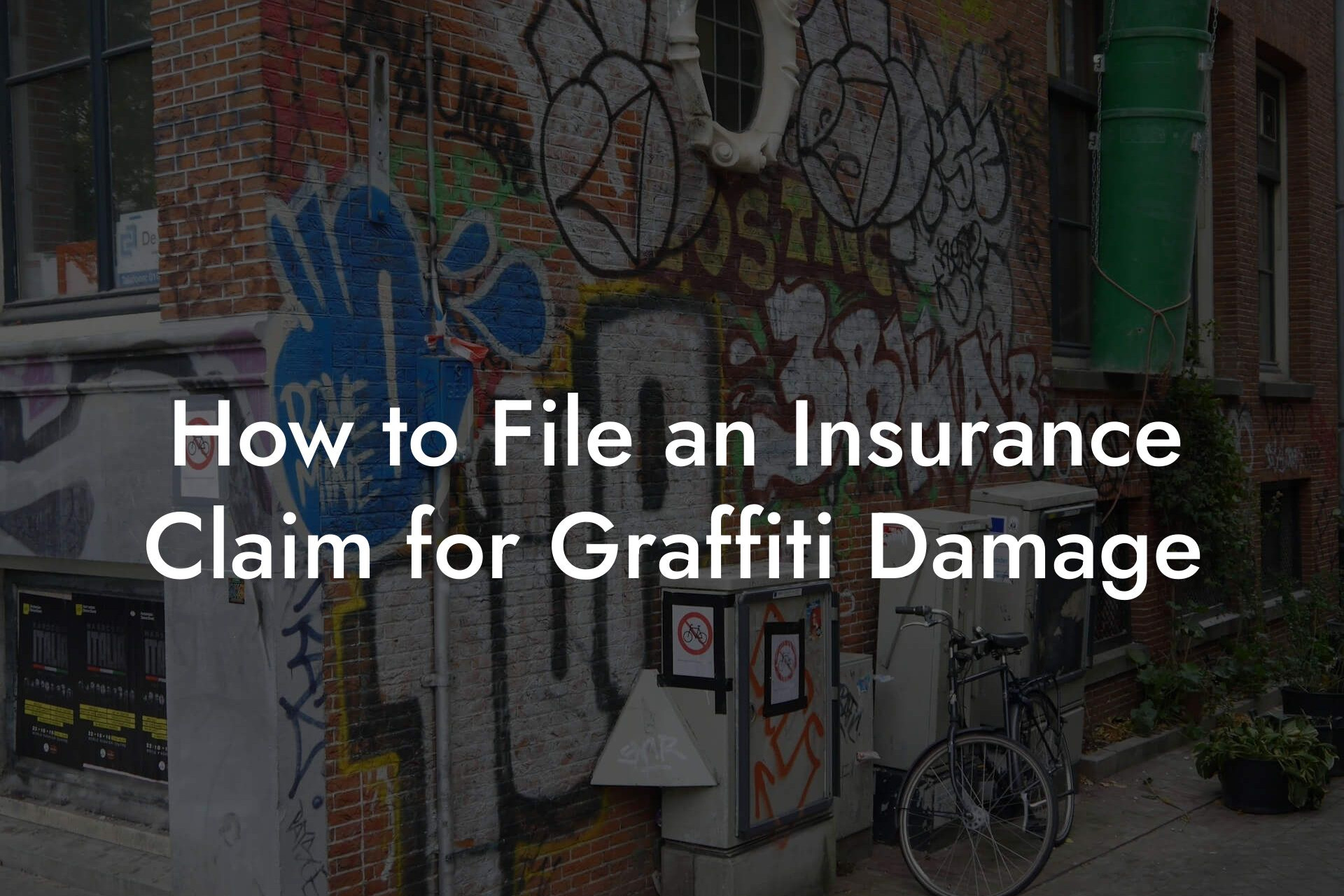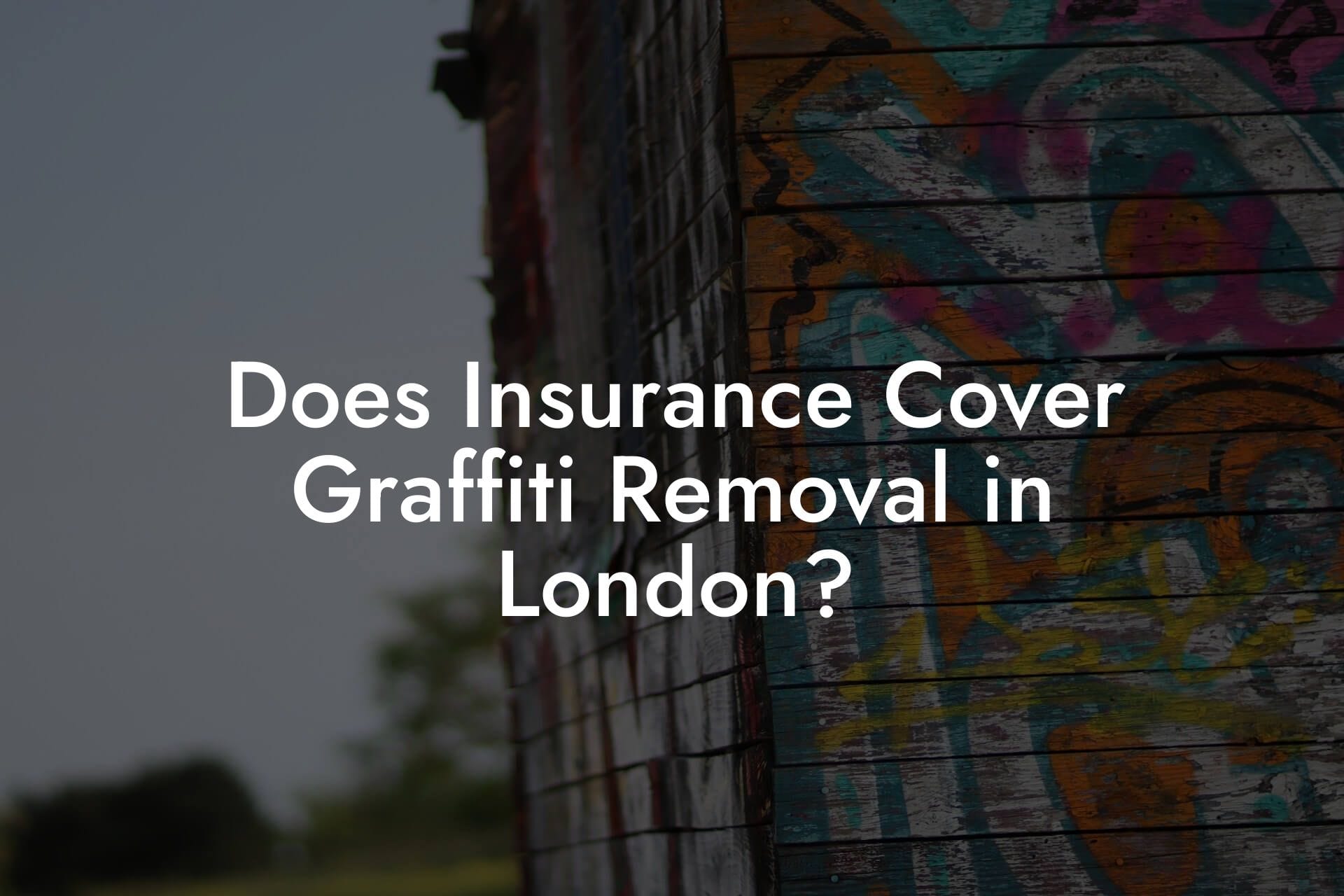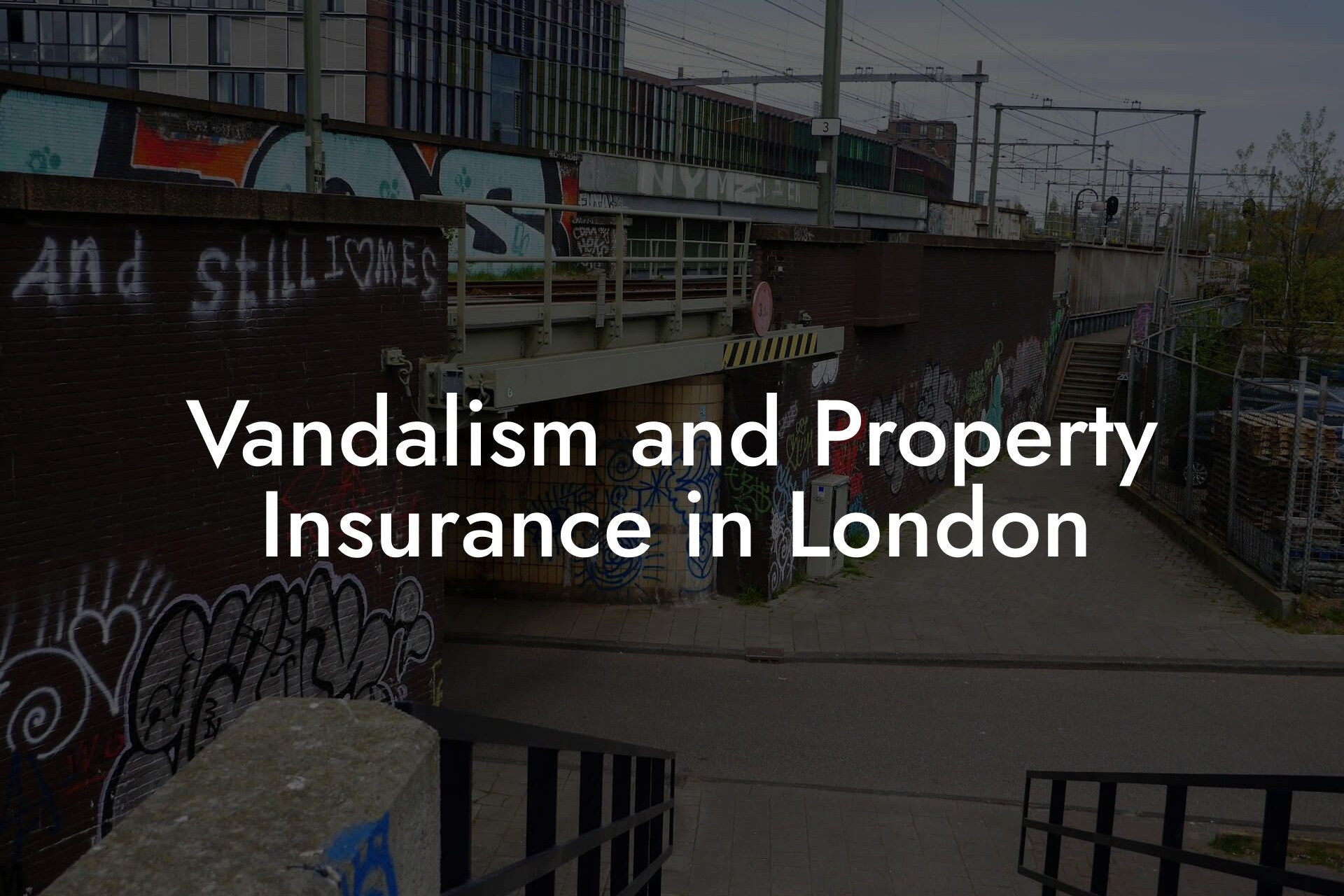As a business owner in London, it's essential to understand the legal obligations regarding graffiti on your property. Graffiti can be a nuisance, causing damage to your property and affecting its appearance. In this article, we'll delve into the legal aspects of graffiti removal, the responsibilities of businesses, and the consequences of non-compliance.
Table of Contents
The Legal Framework
In the UK, the legal framework for graffiti removal is primarily governed by the Anti-Social Behaviour Act 2003 and the Criminal Damage Act 1971. These laws make it an offence to damage or deface property with graffiti, and businesses have a legal obligation to remove graffiti from their premises.
Business Responsibilities
Businesses in London have a legal duty to remove graffiti from their property under the Anti-Social Behaviour Act 2003. This includes:
- Removing graffiti from buildings, walls, and other structures
- Preventing graffiti from reappearing on the same spot
- Cooperating with local authorities to identify and prosecute graffiti vandals
Consequences of Non-Compliance
If a business fails to remove graffiti from their property, they may face legal consequences, including:
- Fines: Businesses can be fined up to £2,500 for failing to remove graffiti
- Community Protection Notices: Local authorities can issue Community Protection Notices, which require businesses to take specific actions to remove graffiti
- Closure Orders: In extreme cases, businesses may be forced to close temporarily or permanently if they fail to comply with graffiti removal regulations
The Role of Local Authorities
Local authorities in London, such as the City of London Corporation and the London Borough Councils, play a crucial role in enforcing graffiti removal regulations. They are responsible for:
- Identifying and reporting graffiti hotspots
- Issuing warnings and fines to businesses that fail to remove graffiti
- Providing guidance and support to businesses on graffiti removal and prevention
Prevention is Key
Preventing graffiti from occurring in the first place is often the most effective way to avoid legal issues and protect your property. Some prevention strategies include:
- Installing security cameras and motion-sensitive lighting
- Applying anti-graffiti coatings to surfaces
- Increasing security patrols in high-risk areas
Removing Graffiti: Best Practices
When removing graffiti, it's essential to follow best practices to avoid damaging your property or causing environmental harm. Some tips include:
- Using environmentally friendly cleaning products
- Avoiding harsh chemicals that can damage surfaces
- Documenting the removal process with before-and-after photos
Seeking Professional Help
Removing graffiti can be a complex and time-consuming process, especially for large or complex graffiti tags. If you're unsure about how to remove graffiti or need assistance, consider seeking professional help from a reputable graffiti removal company like Graffiti Removal London. Our team of experts has the knowledge and equipment to remove graffiti quickly and effectively, ensuring your property is restored to its original condition.
In conclusion, businesses in London have a legal obligation to remove graffiti from their property. Failure to comply can result in fines, community protection notices, and even closure orders. By understanding the legal framework, taking preventative measures, and seeking professional help when needed, businesses can protect their property and avoid legal issues. At Graffiti Removal London, we're committed to providing commercial readers with the information and resources they need to tackle graffiti removal and vandalism clean-up in London.
Frequently Asked Questions
What is the legal obligation for businesses regarding graffiti?
As a business owner in London, you have a legal obligation to remove graffiti from your property under the Anti-Social Behaviour Act 2003 and the Clean Neighbourhoods and Environment Act 2005. Failure to do so can result in fines and further legal action.
What are the consequences of not removing graffiti from my business property?
If you fail to remove graffiti from your property, you may face fines, legal action, and damage to your business's reputation. Additionally, allowing graffiti to remain on your property can attract further vandalism and create an environment that is conducive to crime.
How quickly should I remove graffiti from my business property?
It's essential to remove graffiti as quickly as possible to prevent it from becoming a persistent problem. The sooner you remove graffiti, the less likely it is to attract further vandalism and the easier it is to remove.
What is the best way to remove graffiti from my business property?
The best way to remove graffiti depends on the type of surface and the type of graffiti. At Graffiti Removal London, we use specialized equipment and techniques to ensure that graffiti is removed safely and effectively without damaging your property.
Can I remove graffiti myself?
While it's possible to remove graffiti yourself, it's not recommended. Removing graffiti requires specialized equipment and techniques to avoid damaging your property. Additionally, some graffiti removal products can be hazardous to your health and the environment. It's best to leave graffiti removal to the professionals.
How much does graffiti removal cost?
The cost of graffiti removal varies depending on the size of the graffiti, the type of surface, and the location. At Graffiti Removal London, we offer competitive pricing and a free quote service to help you budget for graffiti removal.
Can I claim compensation for graffiti removal costs?
In some cases, you may be able to claim compensation for graffiti removal costs from your local council or the police. However, this depends on the specific circumstances and the policies in place in your area.
How can I prevent graffiti on my business property?
There are several ways to prevent graffiti on your business property, including installing security cameras, improving lighting, and using graffiti-resistant coatings. At Graffiti Removal London, we can provide you with advice and guidance on how to prevent graffiti on your property.
What is the most common type of graffiti?
The most common type of graffiti is tag graffiti, which involves writing or drawing a name or symbol on a surface. Other types of graffiti include stencil graffiti, mural graffiti, and sticker graffiti.
What is the difference between graffiti and street art?
Graffiti is typically illegal and involves writing or drawing on a surface without permission. Street art, on the other hand, is often commissioned or permitted and can add value to a property. However, the distinction between graffiti and street art can be blurred, and it's often up to the property owner to decide what constitutes graffiti.
Can graffiti be removed from any surface?
Most surfaces can be cleaned of graffiti, but some surfaces may be more challenging than others. At Graffiti Removal London, we have the expertise and equipment to remove graffiti from a wide range of surfaces, including brick, concrete, metal, and glass.
Will graffiti removal damage my property?
When done correctly, graffiti removal should not damage your property. At Graffiti Removal London, we use specialized equipment and techniques to ensure that graffiti is removed safely and effectively without damaging your property.
How long does graffiti removal take?
The time it takes to remove graffiti depends on the size of the graffiti, the type of surface, and the complexity of the removal process. At Graffiti Removal London, we strive to complete graffiti removal as quickly as possible while ensuring that the job is done to the highest standard.
Do you offer a guarantee for your graffiti removal services?
Yes, at Graffiti Removal London, we offer a satisfaction guarantee for our graffiti removal services. If you're not happy with the results, we'll work with you to ensure that the job is done to your satisfaction.
Can I get a quote for graffiti removal services?
Yes, at Graffiti Removal London, we offer a free quote service for graffiti removal. Simply contact us with details of the graffiti and your property, and we'll provide you with a quote for our services.
Do you offer emergency graffiti removal services?
Yes, at Graffiti Removal London, we offer emergency graffiti removal services for businesses that need urgent assistance. We understand that graffiti can be a pressing issue, and we're here to help you resolve it quickly and effectively.
Can you remove graffiti from sensitive surfaces?
Yes, at Graffiti Removal London, we have the expertise and equipment to remove graffiti from sensitive surfaces, including historic buildings, monuments, and other culturally significant properties.
Do you use eco-friendly graffiti removal products?
Yes, at Graffiti Removal London, we use eco-friendly graffiti removal products that are safe for the environment and your property. We're committed to providing graffiti removal services that are both effective and sustainable.
Can I prevent graffiti on my business property with CCTV cameras?
Yes, installing CCTV cameras can be an effective way to prevent graffiti on your business property. However, it's essential to ensure that the cameras are installed and monitored correctly to maximize their effectiveness.
What is the best way to clean up after a vandalism incident?
After a vandalism incident, it's essential to clean up quickly and effectively to prevent further damage and maintain a safe and clean environment. At Graffiti Removal London, we can provide you with guidance and assistance on how to clean up after a vandalism incident.
Can I report graffiti to the police?
Yes, you can report graffiti to the police, especially if you believe it's part of a larger vandalism or criminal activity. The police can help you identify the perpetrators and take action to prevent further incidents.
How can I protect my business from vandalism?
There are several ways to protect your business from vandalism, including installing security cameras, improving lighting, and using vandalism-resistant materials. At Graffiti Removal London, we can provide you with advice and guidance on how to protect your business from vandalism.
What is the impact of graffiti on business?
Graffiti can have a significant impact on business, including damaging your reputation, deterring customers, and affecting your bottom line. At Graffiti Removal London, we understand the importance of removing graffiti quickly and effectively to minimize its impact on your business.
Can I remove graffiti myself with household products?
While it's possible to remove graffiti with household products, it's not recommended. Household products can damage your property, and they may not be effective in removing graffiti. At Graffiti Removal London, we use specialized equipment and products to ensure that graffiti is removed safely and effectively.
How can I prevent graffiti on my business property at night?
There are several ways to prevent graffiti on your business property at night, including installing security cameras, improving lighting, and using vandalism-resistant coatings. At Graffiti Removal London, we can provide you with advice and guidance on how to prevent graffiti on your property at night.
What is the difference between graffiti removal and vandalism cleanup?
Graffiti removal involves removing graffiti from a surface, while vandalism cleanup involves cleaning up after a vandalism incident, which may include removing debris, repairing damage, and restoring the property to its original state. At Graffiti Removal London, we offer both graffiti removal and vandalism cleanup services.
Toby Doherty
Toby Doherty is a seasoned graffiti removal expert with over 20 years of experience in the industry. Throughout his career, Toby has helped countless businesses and property owners in London maintain clean, graffiti-free spaces. His extensive knowledge of graffiti removal techniques, from eco-friendly solutions to advanced technologies like laser cleaning, makes him a trusted authority in the field. Passionate about restoring urban environments, Toby combines his hands-on expertise with a commitment to staying up-to-date on the latest industry trends and innovations. When he’s not out in the field, Toby shares his insights through detailed articles, offering practical advice on everything from graffiti prevention to legal considerations.




